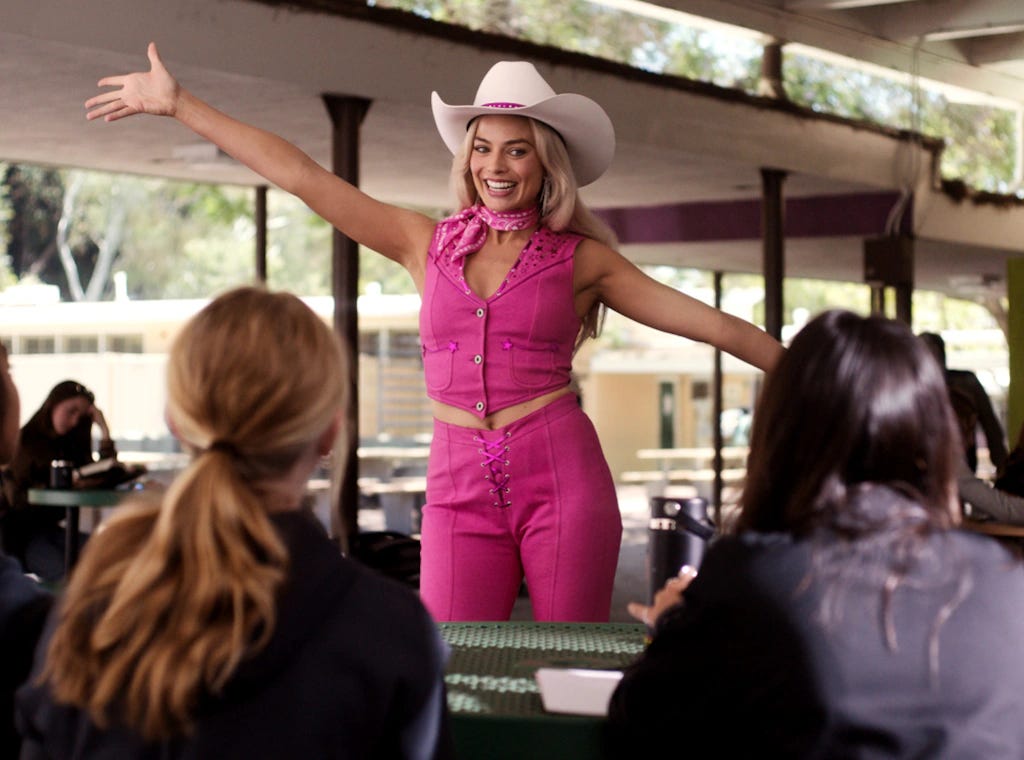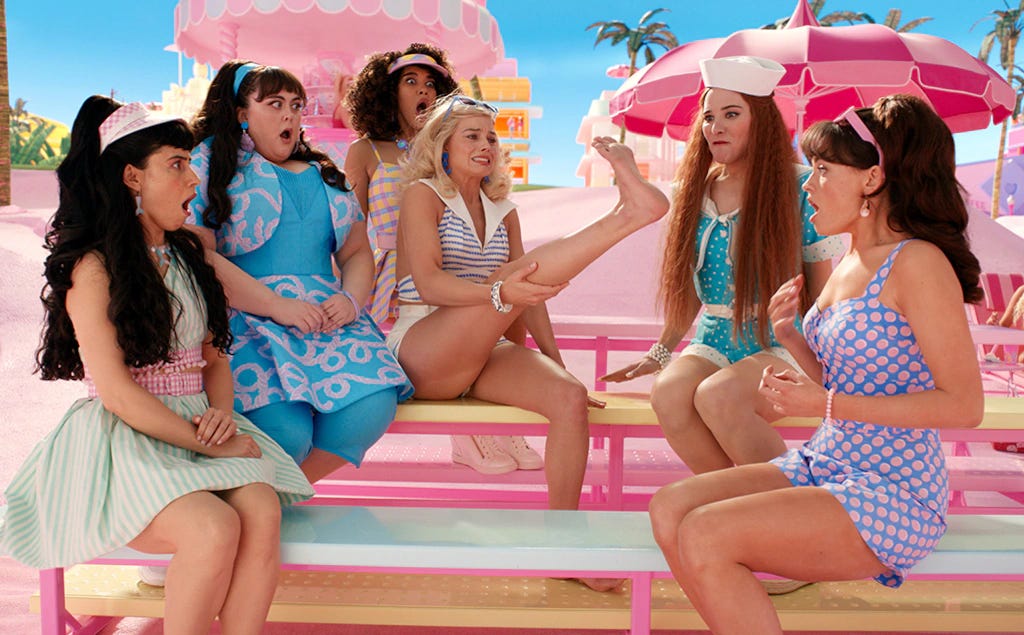Existentialist Thoughts & Barbie
Alternatively: Is Free Will Real?
When was the first time you truly thought about death? That moment you realized that eventually you won’t be here anymore, and it spun you into a crisis about your mortality? This thematic question is what functions as the core strength of Barbie. When Greta Gerwig was announced to direct a Barbie movie alongside Margot Robbie and Ryan Gosling, I was excited but hesitant, after all there has recently been a rush in Hollywood to snatch up-and-coming directors/writers onto projects where they wouldn’t have any true creative control which has been seen with superhero films over the past few years. I was afraid that this same fate would befall Gerwig.
It isn’t rare for a director to list movies that influence their work, but with these films based off major IPs it is difficult to take them seriously. For example, when Lightyear director Angus Maclane stated that the Buzz Lightyear prequel would be influenced by 70s science fiction films as well as the lighting style of French New Wave cinema he was ridiculed and the subject of derision online, because truly, what does any of that even mean? Especially when you are nothing but a name attached to a product that will not bear your creative mark?
Two weeks prior to the release of Barbie, Gerwig had an interview with Letterboxd breaking down the movies that influenced Barbie and was met with similar derision. Over 30 movies were named including: All That Jazz, Singin’ in the Rain, 2001: A Space Odyssey, Rear Window, The Truman Show, Pee-wee’s Big Adventure, and Splash along with many more classics. People, including myself, were curious at best about how these movies would influence Barbie and skeptical at worst that this was just fluff to satiate the appetite of cinephiles who care more deeply for the artistry of film than executives who care about their bottom line.
Prior to the release of the film and the official trailer, I believed that the movie would be a standard fish out of water comedy with Barbie and Ken coming to grips with the realities of the real world versus the comforts of their Barbieland. I was correct…to a point. The first teaser trailer shown for Barbie was an homage to 2001, featuring children playing with baby dolls before being met with a new brand of toy, the next innovation that led to the dawn of the future, the Barbie. The follow-up official trailer is where I realized that the film would be more than what I anticipated via a scene where Margot Robbie’s Barbie asks the all-important question “Do you guys ever think about dying?”
One of the central themes of Gerwig’s Barbie is figuring out what does it mean to be human, what does it mean to want to truly live a life? When the film begins, we are introduced to Robbie’s Barbie who is the stereotypical Barbie doll. Beautiful long blonde hair, perky smile, perfect posture, etc. She has her purpose in life, to wake up every day, wave to her fellow Barbies, and to party the night away with a glorious dance number. It’s perfect, perhaps, too perfect. During one of these wonderful parties Barbie kills the vibe by pondering about the frailty of life, who among us hasn’t been in her shoes? This kickstarts the plot of the movie, with Barbie’s world turned upside down as she must find the source of her discontent in the real world and rectify the issues facing whoever is playing with her in reality.
Here is where the film begins to toy (pun not intended) with the idea of autonomy, are we destined to follow a predetermined path set out before us forever or are we able to forge our own path? For all the Barbies and Kens in Barbieland they have their set path, they literally are their jobs. For Ryan Gosling’s Ken it is simply, beach. For Issa Rae’s Barbie she is president; they all have their own roles in Barbieland, but they aren’t roles they chose for themselves. They are roles given to them and they enact out the same days on repeat as it is all they’ve ever known.
When Barbie begins unraveling, she loses all sense of self, she doesn’t have a purpose in life if she cannot be the stereotypical Barbie and this terrifies her. Equally terrifying for her is her experience in the real world - in Barbieland the Barbies operate in every position of power, control finances, and don’t deal with the threat of violence around the corner from their male counterparts versus the real world where the opposite is true. This is another blow to Barbie’s self-image and damages her beliefs about the world outside of Barbieland, causing her to deal with cognitive dissonance. For the first time in her life, she is self-conscious and self-aware, who is she if she is not the stereotypical Barbie?
Barbie is given the illusion of choice by way of a scene with Kate McKinnon’s Weird Barbie, where she is given the option to not go on her hero’s journey of self-discovery and blissfully remain ignorant or choose to go into reality. She repeatedly chooses to remain in her blissful existence until she is told this was never a choice to begin with. Late in the movie she is presented with a choice again, this time by a figure who is essentially God to her, the ghost of Ruth Handler (Barbie’s creator played by Rhea Pearlman). This time she is given the options of choosing to be a flesh and blood woman or to remain a doll in Barbieland.
After witnessing how reality is different than Barbieland, after being ridiculed by teenagers for how the existence of the Barbie toy led to body image issues for women worldwide, after being told that she will eventually have to die instead of living for eternity as a Barbie, she chooses to live a life. She chooses to not have her life’s purpose be dictated by being stereotypical Barbie, but by finding out who she is and evolving into someone new.
Thematically, Barbie is at its best when facing questions about what it means to be human along with questioning our purpose and the desire for autonomy. While the movie is strongest when focused on these questions, it feels as if there was opportunity for deeper analysis within the film of what causes her to face this crisis. The film doesn’t tackle the real-life impact of the Barbie toy on body image issues that women have faced since her debut, and this ultimately feels like a failure in writing that could have further accentuated reasons why Barbie would be facing a crisis of the self and her identity. At the end of the day Barbie is still a Mattel commercial, it operates as a vehicle to sell toys and merchandise (yes I bought the Kenough sweatshirt and am part of the problem) but underneath that is a movie spattered with genuine questions that it wants its audience to consider.


